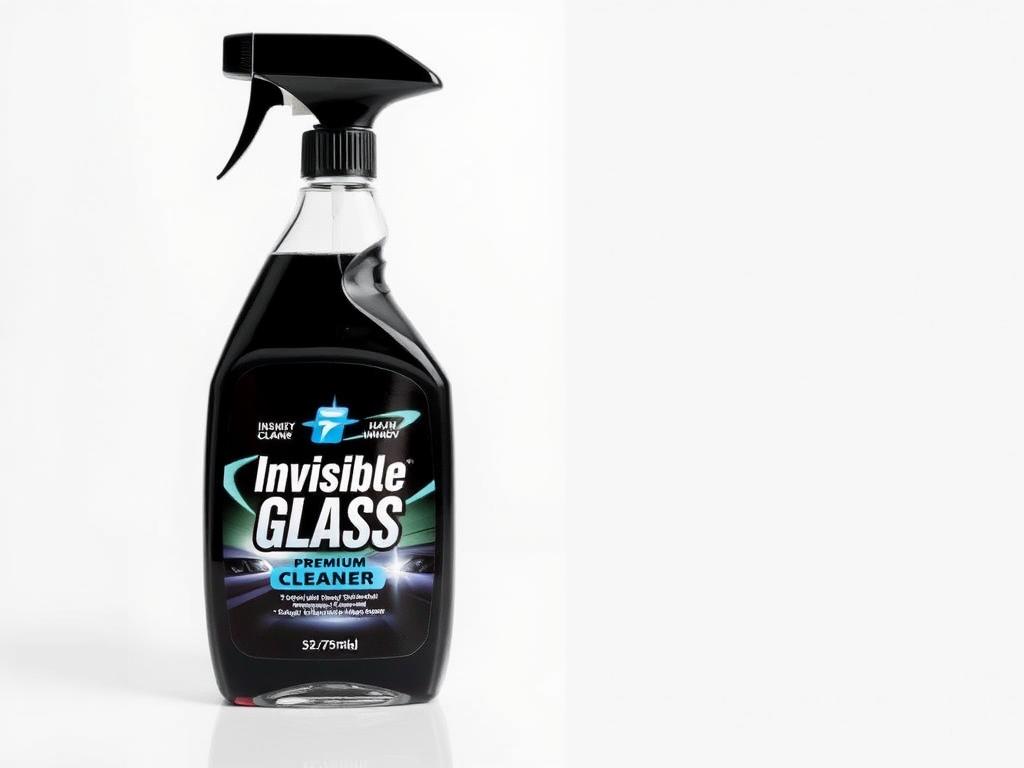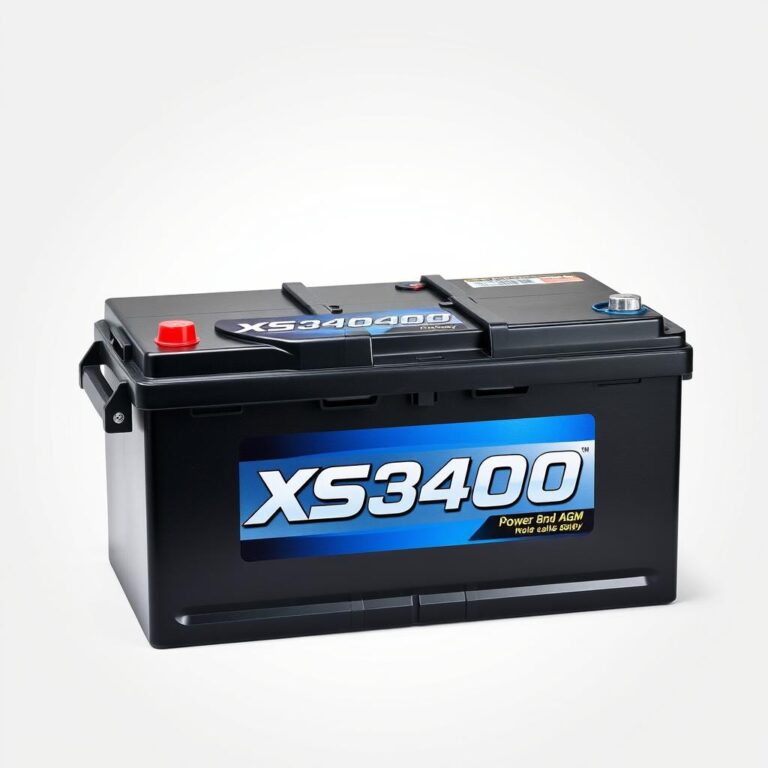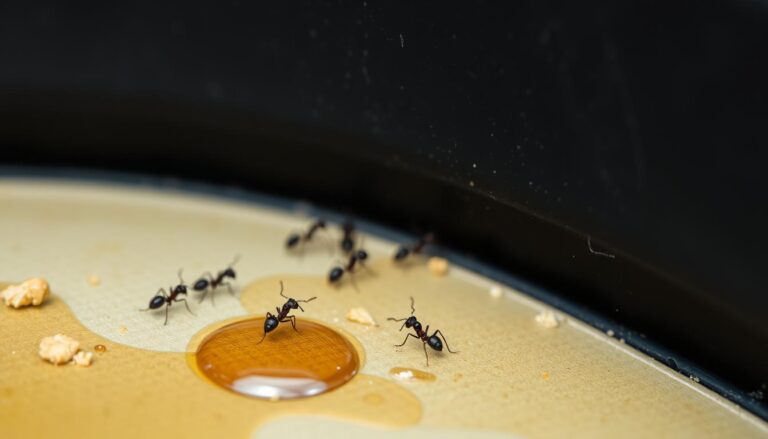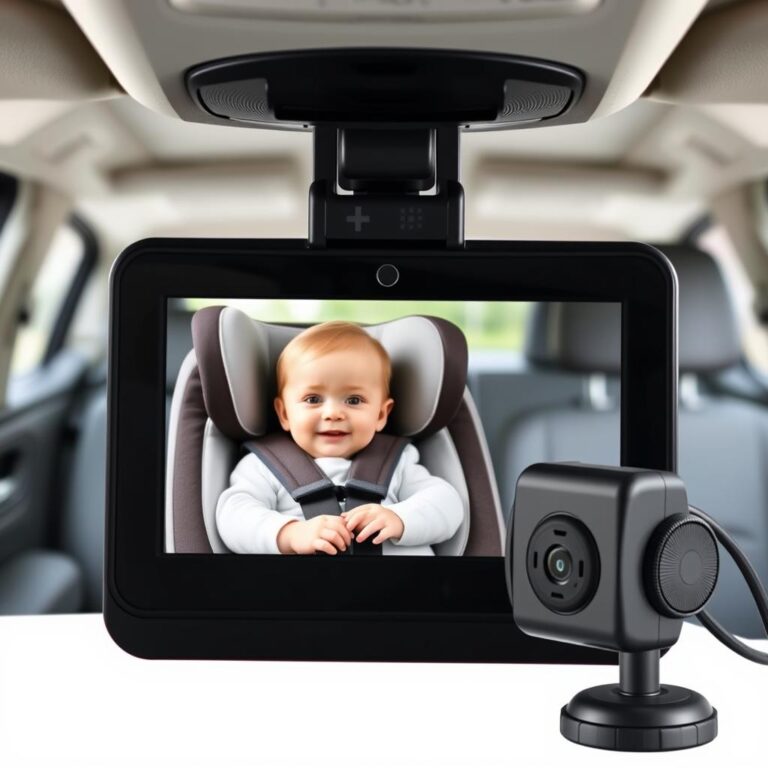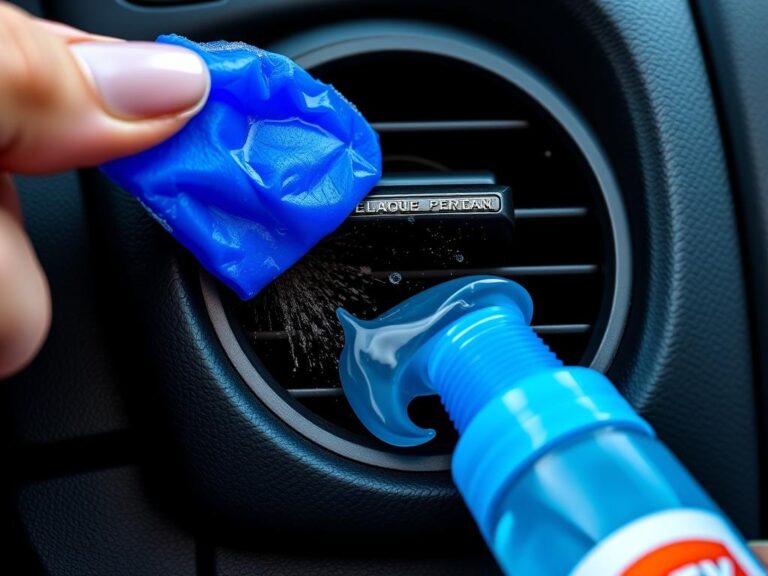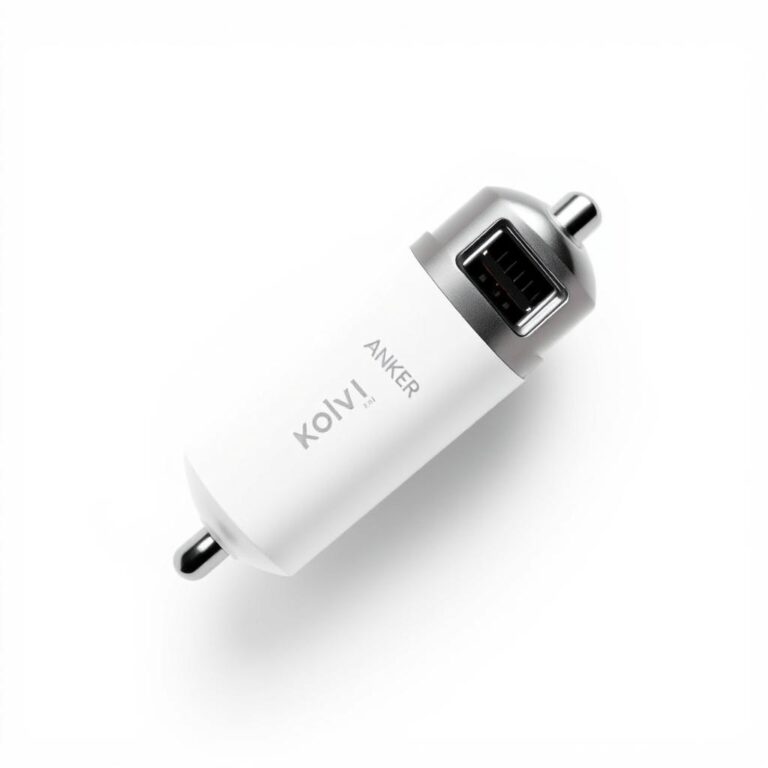Top 10 Best Cleaner for Car Windows in 2025
As an Amazon Associate, we earn from qualifying purchases.
Struggling with streaky, smudged car windows that just won’t come clean? You’re not alone. The right car window cleaner can make all the difference between dangerous glare and crystal-clear visibility. Whether you’re dealing with tinted windows, stubborn road grime, or interior fog, we’ve tested the top products to help you find the perfect solution.
Our evaluations focus on what matters most: formula type, surface compatibility, pH levels, cleaning power, and value. We’ve analyzed real user experiences and verified specifications to bring you only the most effective options for your specific needs.
Best Car Window Cleaners Compared
| Product | Best For | Formula Type | Surface Compatibility | pH/VOC | Price | Action |
| Invisible Glass Premium (Editor’s Choice) | All-purpose clarity | Ammonia-free, alcohol-based | Glass, tint, mirrors, screens | Neutral (7.0), Low-VOC | $9-12 | Check Price on Amazon |
| Meguiar’s Perfect Clarity | Tough grime removal | Ammonia-free, professional-grade | Glass, tint-safe | Neutral (7.2), Low-VOC | $10-13 | Check Price on Amazon |
| Rain-X Cerami-X | Water repellency | Ceramic coating + cleaner | Glass, mirrors | Slightly alkaline (8.5), Low-VOC | $11-14 | Check Price on Amazon |
| Griot’s Garage Ceramic | Long-lasting protection | Ceramic coating + cleaner | Glass, tint-safe | Neutral (7.0), Low-VOC | $10-15 | Check Price on Amazon |
| Rain-X Glass Cleaner + Rain Repellent | Budget water repellency | Water repellent + cleaner | Glass, mirrors | Slightly alkaline (8.0), Medium-VOC | $6-8 | Check Price on Amazon |
Editor’s Choice: Why Invisible Glass Premium Stands Out
After extensive testing, Invisible Glass Premium emerges as our clear winner. Its ammonia-free, alcohol-based formula delivers consistently streak-free results across all glass surfaces without damaging tints or seals.
What sets it apart from runners-up like Meguiar’s Perfect Clarity (which leaves a slightly grippy feel) and Rain-X Cerami-X (which requires more buffing) is its perfect balance of cleaning power and ease of use. The neutral pH formula (7.0) ensures it won’t damage window tints or rubber seals, while its rapid-evaporation technology prevents streaking.
The wide spray pattern and ergonomic bottle design make application effortless, and it performs equally well on both interior and exterior surfaces. For drivers seeking the most reliable, versatile glass cleaner with minimal effort required, Invisible Glass Premium is the standout choice.
Detailed Reviews of the Best Car Window Cleaners
1. Invisible Glass Premium Glass Cleaner
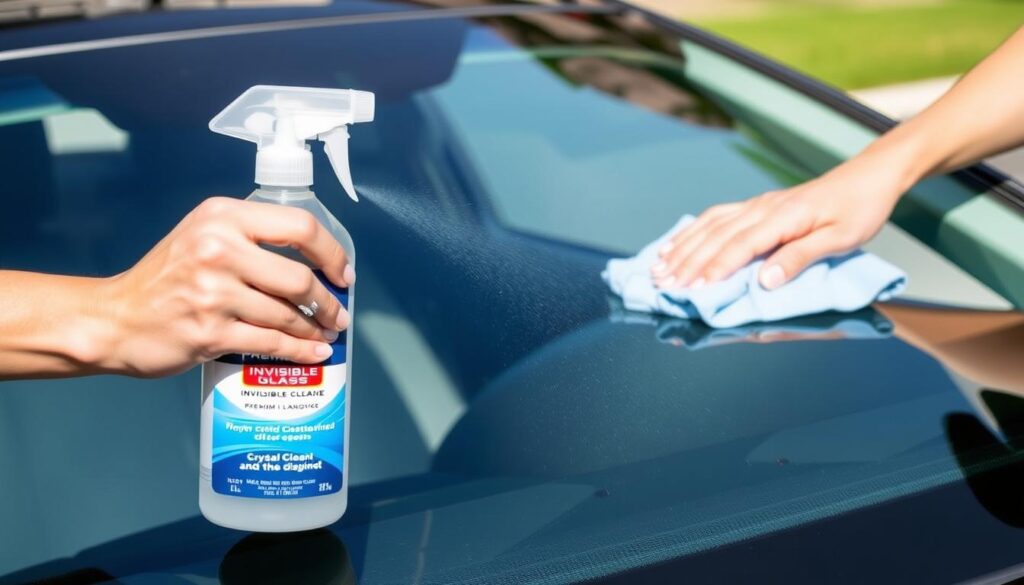
Invisible Glass Premium has earned its reputation as the go-to solution for professional-grade clarity. This ammonia-free formula uses a proprietary blend of solvents that evaporate completely, leaving no residue or streaks behind. It’s particularly effective at cutting through tough road grime, fingerprints, and even cigarette smoke film that other cleaners struggle with.
Specifications:
| Ammonia-free, alcohol-based | Glass, tint, mirrors, screens |
| 7.0 (neutral) | Low ( |
| 19 oz spray bottle | Fragrance-free |
| Fast (30-60 seconds) | Non-toxic, tint-safe |
Pros
- Truly streak-free finish
- Works on all glass surfaces
- No residue or film left behind
- Safe for tinted windows
- Effective on interior fog and fingerprints
Cons
- Slightly higher price point
- No water-repelling properties
- Spray nozzle occasionally clogs
Users consistently praise Invisible Glass for its streak-free performance, with many noting they’ve switched from household glass cleaners after seeing the difference. Professional detailers particularly appreciate how it doesn’t leave any residue that attracts dust. Some users mention the need to use microfiber towels rather than paper towels for best results.
2. Meguiar’s Perfect Clarity Glass Cleaner
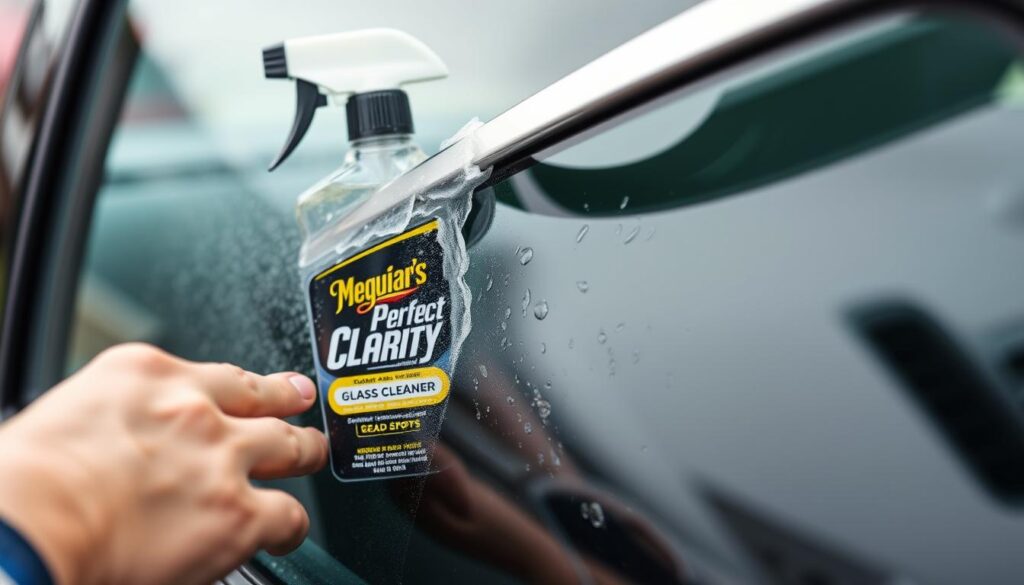
Meguiar’s Perfect Clarity stands out for its exceptional cleaning power on heavily soiled windows. This professional-grade formula cuts through stubborn road film, bug splatter, and tree sap that often requires multiple applications with other cleaners. The anti-hazing components ensure crystal clear results even in direct sunlight.
Specifications:
| Ammonia-free, professional-grade | Glass, tint-safe |
| 7.2 (near neutral) | Low (1-2%) |
| 24 oz spray bottle | Light chemical scent |
| Medium (60-90 seconds) | Non-toxic, tint-safe |
Pros
- Superior cleaning power for tough grime
- Wide spray pattern covers large areas quickly
- Works well in direct sunlight
- Professional-grade formula
- Larger bottle size than competitors
Cons
- Slightly grippy feel after drying
- Requires more buffing for perfect clarity
- Light chemical scent
Users with heavily soiled vehicles particularly appreciate Meguiar’s cleaning power, with many noting it requires fewer applications than other products. Professional detailers often keep it on hand for initial cleaning before applying ceramic coatings. Some users mention the slightly grippy feel after drying, which can attract dust more quickly than completely residue-free options.
3. Rain-X Cerami-X Glass Cleaner
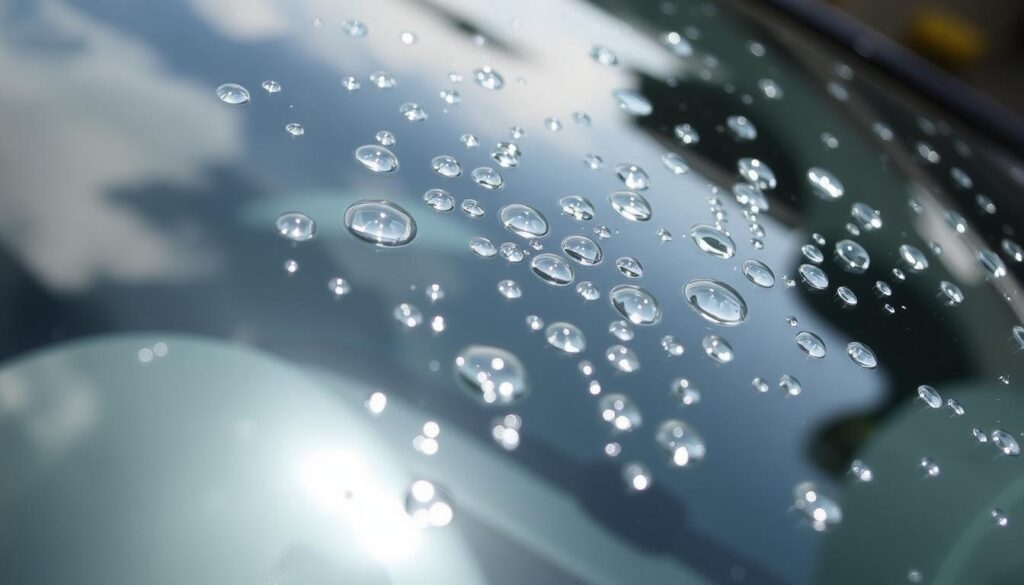
Rain-X Cerami-X combines cleaning power with ceramic coating technology to create a hydrophobic barrier on your glass. This 2-in-1 solution not only cleans effectively but also causes water to bead and roll off, improving visibility during rainy conditions. The ceramic coating can last up to six weeks with proper application.
Specifications:
| Ceramic coating + cleaner | Glass, mirrors |
| 8.5 (slightly alkaline) | Low (1-3%) |
| 16 oz spray bottle | Light chemical scent |
| 4-6 weeks | Use caution with tint |
Pros
- Creates water-repelling barrier
- Reduces need for wipers in light rain
- Long-lasting protection (4-6 weeks)
- Improves visibility in wet conditions
- Smooth, slick feel after application
Cons
- Requires more effort to apply properly
- Can leave haze if not buffed thoroughly
- Slightly higher pH may affect some tints
Users in rainy climates particularly value the water-repelling properties, with many reporting significantly improved visibility during storms. The coating’s effectiveness decreases gradually over time, with most users reporting 3-4 weeks of strong performance before needing reapplication. Some users note that proper application technique is crucial—requiring more buffing than standard glass cleaners to avoid hazing.
4. Griot’s Garage Ceramic Glass Cleaner
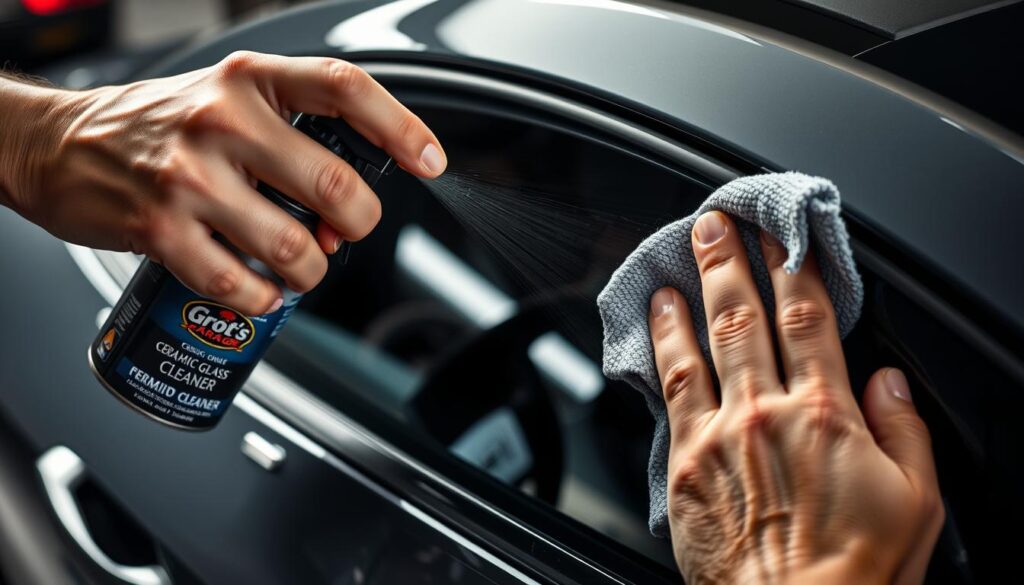
Griot’s Garage Ceramic Glass Cleaner offers premium ceramic protection with a neutral pH formula that’s safe for all window types. This professional-grade product creates a slick, hydrophobic surface that repels water, dirt, and even light ice formation. It’s particularly popular among luxury vehicle owners seeking long-lasting clarity.
Specifications:
| Ceramic coating + cleaner | Glass, tint-safe, mirrors |
| 7.0 (neutral) | Low ( |
| 22 oz spray bottle | Minimal scent |
| 4-5 weeks | Tint-safe, non-toxic |
Pros
- Premium ceramic protection
- Neutral pH safe for all window types
- Excellent water repellency
- Reduces frost adhesion in winter
- Professional-grade formula
Cons
- Higher price point
- Requires thorough buffing
- Ergonomically awkward bottle
Professional detailers frequently recommend Griot’s for its premium performance and tint-safe formula. Users particularly appreciate the reduced frost adhesion in winter months, making morning scraping easier. The neutral pH formula receives praise from those with expensive tinted windows who worry about damage from harsher cleaners. Some users note the bottle design could be improved for easier handling.
5. Rain-X Glass Cleaner + Rain Repellent
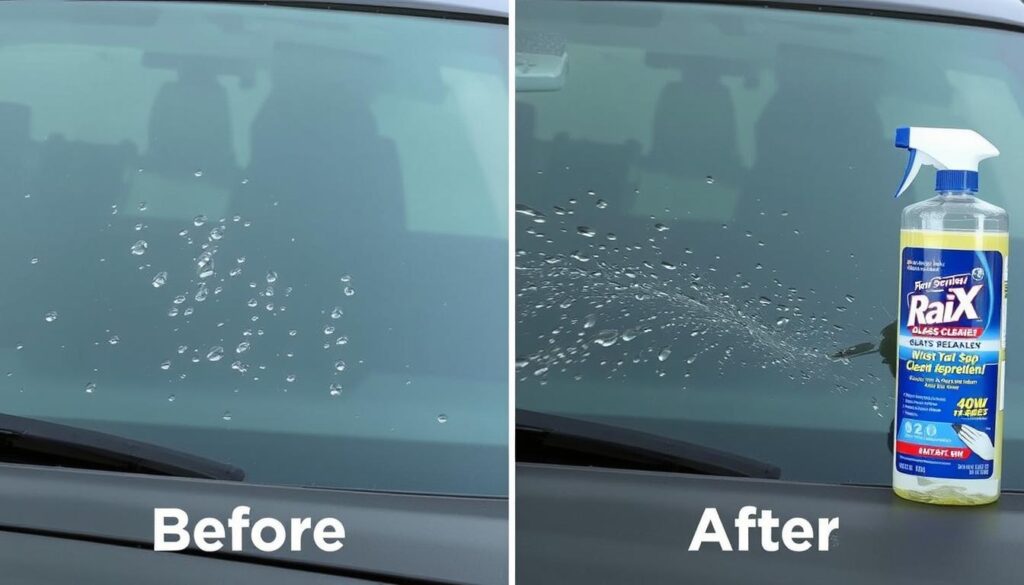
Rain-X Glass Cleaner + Rain Repellent offers an affordable entry into water-repelling technology. This budget-friendly option combines decent cleaning power with Rain-X’s signature water-beading technology, though it’s not a true ceramic coating. It’s ideal for drivers wanting basic water repellency without the higher price or application effort of ceramic products.
Specifications:
| Water repellent + cleaner | Glass, mirrors |
| 8.0 (slightly alkaline) | Medium (3-5%) |
| 23 oz spray bottle | Moderate chemical scent |
| 2-3 weeks | Use caution with tint |
Pros
- Budget-friendly price
- Decent water-repelling properties
- Easier application than ceramic coatings
- Good cleaning power for everyday dirt
- Widely available in stores
Cons
- Shorter protection duration
- Stronger chemical smell
- Can leave haze if not buffed properly
Budget-conscious users appreciate the affordable water-repelling benefits, though many note the effect doesn’t last as long as premium ceramic options. The product receives praise for its availability in physical retail stores when needed quickly. Some users with tinted windows report being cautious with this product due to its slightly higher pH level, though most don’t experience issues with modern quality tints.
How to Choose the Best Cleaner for Car Windows
Understanding Formula Types
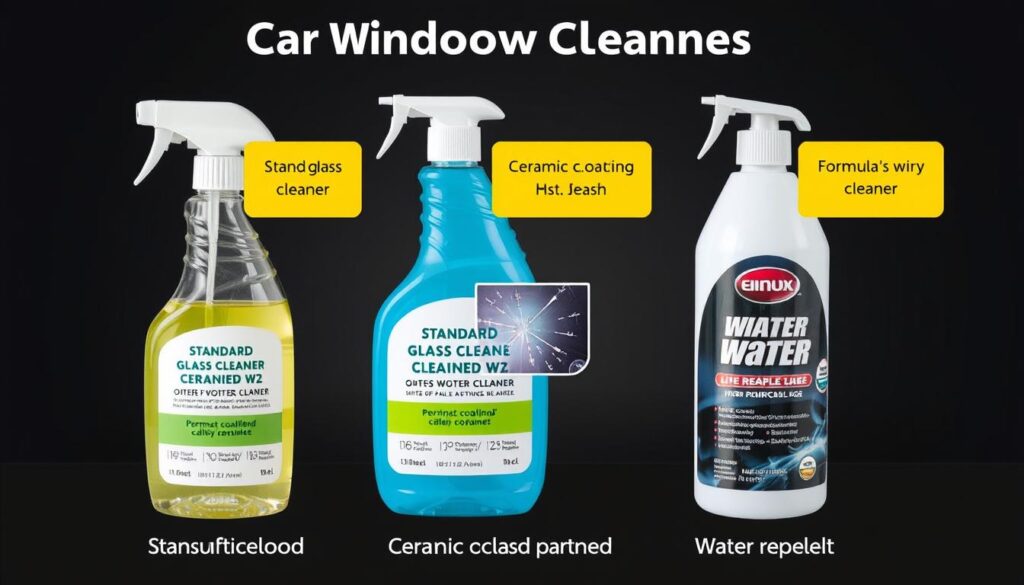
Car window cleaners come in several distinct formulations, each with specific benefits:
- Standard Glass Cleaners: Focused purely on cleaning without additional properties. Look for ammonia-free formulas with alcohol bases for streak-free results.
- Ceramic Coating Cleaners: Two-in-one products that clean and leave behind a hydrophobic ceramic layer. These offer longer-lasting protection but require more careful application.
- Water Repellent Cleaners: Similar to ceramic coatings but with shorter durability. They create a hydrophobic surface that causes water to bead and roll off.
Surface Compatibility and Safety
Not all glass cleaners are safe for all surfaces in your vehicle:
- Tinted Windows: Always use ammonia-free formulas with neutral pH (6.5-7.5) to prevent damage to window tint.
- Touchscreens/Displays: Many glass cleaners are too harsh for electronic displays. Check compatibility or use dedicated screen cleaners.
- Aftermarket Treatments: If you’ve applied aftermarket coatings or films, verify cleaner compatibility to avoid damaging these investments.
pH Levels and Chemical Safety
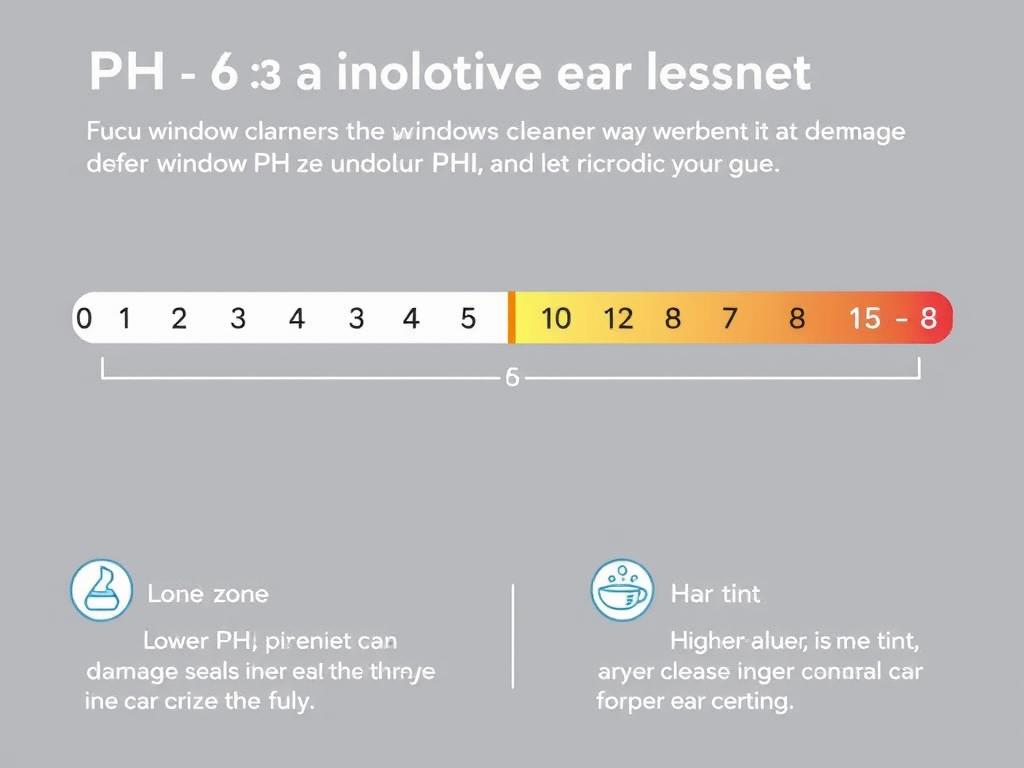
The pH level of your glass cleaner affects both its performance and safety:
- Neutral pH (6.5-7.5): Safest for all surfaces including tinted windows and rubber seals.
- Slightly Alkaline (7.5-9.0): May offer stronger cleaning but use caution with tinted windows.
- VOC Content: Lower VOC formulas (under 3%) are better for health and environment, especially when cleaning interior glass.
Application Method and Ease of Use
Consider how the product is applied and how much effort is required:
- Spray Pattern: Wide, even spray patterns cover more area efficiently.
- Drying Time: Faster-drying formulas (30-60 seconds) reduce the chance of streaking.
- Buffing Requirements: Standard cleaners typically require less buffing than ceramic or water-repellent formulas.
- Residue: Quality cleaners should evaporate completely without leaving sticky or grippy residue.
Price vs. Performance Considerations
Car window cleaners generally fall into three price tiers:
- Budget ($5-$8): Basic cleaning with few additional benefits. May require more frequent application.
- Mid-range ($8-$12): Better cleaning power, often ammonia-free with minimal streaking.
- Premium ($12-$25): Professional-grade formulas with additional benefits like ceramic coating or extended water repellency.
Premium products are worth the investment if you drive frequently in rainy conditions, want longer-lasting protection, or have expensive tinted windows that need safe, effective cleaning.
Frequently Asked Questions
Are ammonia-based cleaners safe for car windows?
Ammonia-based cleaners should be avoided on car windows, especially if you have tinted windows. Ammonia can break down the adhesive in window tint, causing bubbling, discoloration, and eventual failure. It can also damage rubber seals and plastic trim around windows over time. Always look for cleaners specifically labeled “ammonia-free” for automotive use.
How often should I clean my car windows?
For optimal visibility and safety, exterior windows should be cleaned every 1-2 weeks depending on driving conditions. Interior windows typically need cleaning every 2-4 weeks to remove fingerprints, dust, and interior fog. If you use a ceramic or water-repellent coating, follow the manufacturer’s recommendations for reapplication, usually every 3-6 weeks for best performance.
What’s the best way to prevent streaks when cleaning car windows?
To prevent streaks: 1) Clean windows when they’re cool and out of direct sunlight, 2) Use high-quality microfiber towels rather than paper towels, 3) Apply cleaner to the towel first rather than directly on very hot glass, 4) Use a clean section of towel for final buffing, and 5) Wipe in one direction (horizontal) on the inside and another direction (vertical) on the outside to easily identify which side has streaks if they occur.
Are ceramic glass cleaners worth the extra cost?
Ceramic glass cleaners are worth the investment if you frequently drive in rainy conditions or want to reduce how often you clean your windows. The hydrophobic coating causes water to bead and roll off, improving visibility during rain and making future cleaning easier as dirt and grime don’t adhere as readily. However, they require more careful application and buffing to avoid hazing or streaking.
How do I remove stubborn water spots from car windows?
For stubborn water spots (mineral deposits), standard glass cleaners often aren’t strong enough. Try a 50/50 mixture of distilled white vinegar and distilled water, apply with a microfiber cloth, and let sit for 1-2 minutes before buffing. For extremely stubborn spots, specialized water spot removers containing mild acids may be necessary. Always follow with a regular glass cleaner to remove any residue.
Final Thoughts on Choosing the Best Cleaner for Car Windows
Finding the perfect car window cleaner comes down to your specific needs and priorities. For overall performance and versatility, Invisible Glass Premium remains our top recommendation with its streak-free formula and ease of use. Those seeking water repellency will appreciate Rain-X Cerami-X or Griot’s Garage Ceramic, while budget-conscious shoppers can get good results with Rain-X Glass Cleaner + Rain Repellent.
Remember that proper application technique is just as important as the product itself—use quality microfiber towels, clean in appropriate lighting conditions, and follow manufacturer instructions for best results. With the right cleaner and technique, you’ll enjoy crystal-clear visibility and improved safety on every drive.

